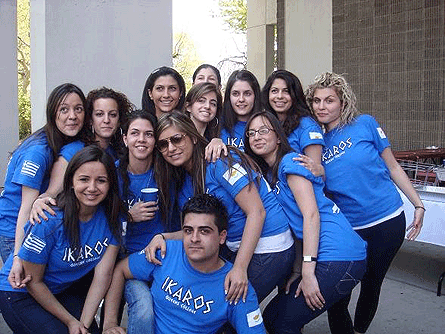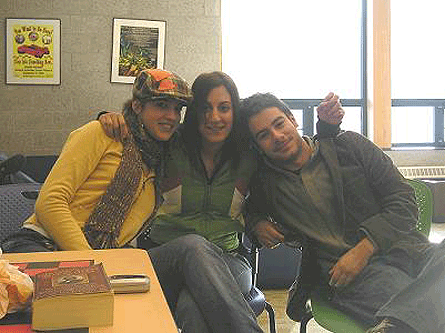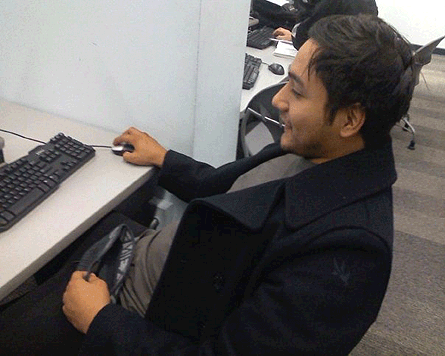by Catherine Skaris
The most motivational teachers tend to be those of elementary or grade school. It is then that teachers have more excitement and patience to teach those young minds. Dan Lomeli, student, states: “My second grade teacher, Mrs. Drago, was so sweet and kind. She was really involved with the kids in the class. She was the one that saw my flare for writing and nurtured it, helping me become a better writer.” The teachers in that stage of the learning process should all be encouraging. At that age, teachers make learning fun so that they can keep the attention of their students. Surely this style of teaching could continue throughout ones’ educational career.

Still, it seems as if school systems are quickly disintegrating and students are suffering. Schools, especially public and high-need schools, have trouble keeping the importance of the classrooms. The lack of authority and discipline, is affecting the learning of the students. However this isn’t solely the teachers’ fault. Beth Pasternak notes that “in my opinion, the problem with high-need schools is that teachers tend to care more than the administration does; teachers can’t give a structure without the help of the administration, and that ends up hurting the students.” And this isn’t only an issue in grade schools; universities are experiencing the same problems as well.
In private universities the tuition is quite often over 20,000 a year; for that amount one expects the professors to be excellent. Yet, many a time students have complained about the professors’ lack of interest and capabilities. For instance, while attending a university, I came in contact with a certain professor that was completely disinterested, not only in the subject area, but in the students as well. This was evident with the amount of students that dropped the class within the first week, resulting in a total of 10 students by the end of the year; students that barely passed the class at that. The students not only expressed their disappointment and concerns to the department, but filled out the professor reviews with their complaints. And yet, the professor remained because of tenure.

These problems are not only central to private universities; they can be seen, perhaps more visibly, in those that are public as well. Staverie Boundouris, speech pathologist, states: “I once had a professor, in what could have been an interesting class, open up a newspaper and read it while sipping his coffee as we sat in the classroom and watched him.” Students in all universities are hurt by the inconsistency of professors. Beth Pasternak, teacher, notes that “some professors either want to be there and teach, while others are more interested in their research.” Many require the books they have written as reading material for their class, completely absolving them of the need for any interactive learning. Others rattle off assignments on material not even covered in class. And some even post power point presentations online, completely obliterating their need to actively teach in class. As Boundouris states, “…there is a certain sense of nostalgia of what teachers were like in much simpler times. Before, the chalkboards actually spoke to you, and we wrote in notebooks with pencils instead of Macbooks.” And yet, even though reviews are filled out negatively, and complaints are filed, there is no significant change, and professors continue to show a complete disregard for their classes. How are students expected to learn and excel when they have no say in their education process?
Yet, hope is not all lost; the exceptional professors that go the extra mile for their students do exist. According to Pasternak, “in some of my classes, the professors truly had a passion for education, and you can tell that in their teaching.” With the addition of extensive office hours and the availability of email, most students are able to easily interact with their professors one on one (those who offer them of course). As a general rule, these professors are the ones that are new to their occupation. Although most young new teachers offer the most interactive of classes, there are those with tenure that still are able to teach with passion. Billy Schroder, student, says that “…the teachers who have a passion for teaching help the students. Normally those are the ones who are newer in the teaching game, because they remember how it was to be in our shoes.”

There are many reasons why a significant amount of teachers that have been in the industry for a long time lose their touch. “Over the course of a ten, twenty, thirty year career, certain sense of reality hits and the ‘joy’ portion of doing something you love at least simmers down a slight bit,” says Ian Nugent, a student. In addition, teachers may be tired of trying to fight the administration on many issues and give up, treating their occupation as a simple job. There will always be a rift between those who go to work simply to get money and go home, and those who love what they do and are passionate about it.
In 2008 the school systems were hit with a major blow. According to the New York Post, Mayor Bloomberg ordered the Department of Education “to cut $100 million, or 1.75 percent” from their budget. A survey of 375 schools showed nearly half had to cut orders for books, instructional supplies, tutoring services and after-school and weekend classes.” In January of 2009, according to The New York Times, schools may “have to lay off 15,000 employees, many of them teachers” within the next year. Not only are these cuts horrific but they are going to have a profound effect on the education system. These cuts are especially evident in universities, where in an effort to protect those under tenure, adjunct professors are the first to be laid off. This will in fact be a devastating blow to the universities. As Pasternak notes, “new young teachers tend to be more enthusiastic than the ones that have been there for a long time. The professors that have been teaching for many years are usually the ones that don’t feel like they have to go above and beyond.” Since adjunct professors are typically the new teachers, they are the ones that are being laid off. What is this saying about our education system?

Overall there seems to be a widespread agreement: the teachers that are the most influential and encouraging are the new, young ones. But, there are quite a few of teachers and professors with tenure that still are able to influence and motivate students. As Staverie Boundouris explains, “young teachers are those who come in with fresh ideas and enthusiasm. However, keep in mind there are the seasoned teachers that have more wisdom and knowledge over the subject matter.” My question is, what can we do, as students, mothers, fathers and teachers, to improve the education system for the future?